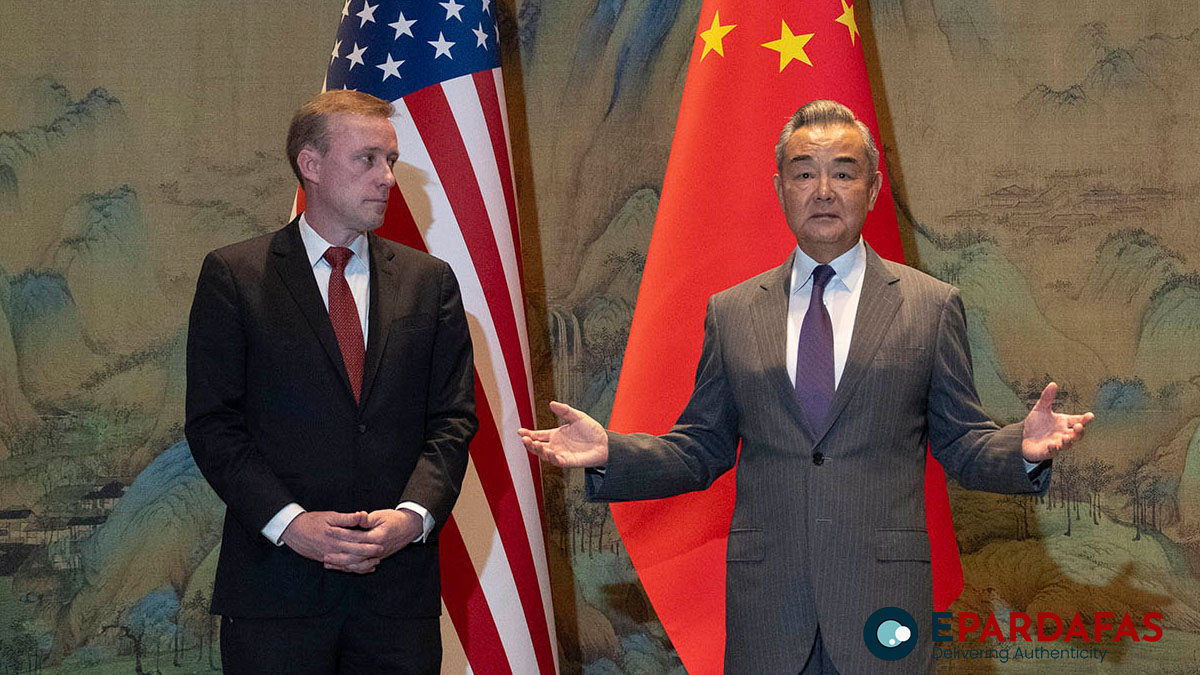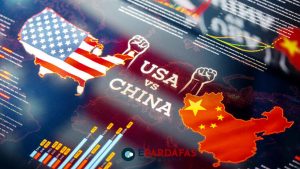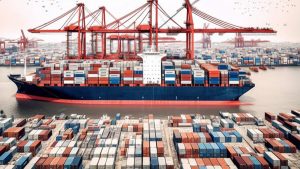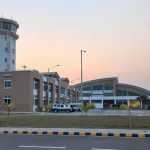
Chinese Foreign Minister Wang Yi Meets U.S. National Security Adviser Jake Sullivan in Beijing Amid Heightened Tensions

Chinese Foreign Minister Wang Yi and U.S. National Security Adviser Jake Sullivan held a crucial meeting in Beijing on Tuesday, as both nations work to maintain their “strategic channel of communication” amid rising tensions. The meeting, reported by China’s state broadcaster CCTV, is part of ongoing efforts to stabilize ties between the two global powers.
Sullivan’s visit comes shortly after Washington imposed new sanctions on Chinese companies for allegedly supporting Russia in its ongoing war against Ukraine, a move that Beijing has strongly condemned as “wrong practices.” Despite these tensions, both sides emphasized the importance of managing their relationship through dialogue.
Ahead of their closed-door discussions at a resort near Beijing, Wang Yi acknowledged the critical nature of the U.S.-China relationship for the world, noting that it had experienced significant “twists and turns.” Sullivan, in turn, highlighted the importance of addressing both agreements and disagreements in a “substantive” manner.
China, through this high-level engagement, aims to counter what it perceives as Washington’s “misguided perception” of its actions and intentions. State media outlet Xinhua, in a commentary ahead of the meeting, urged the U.S. to “show genuine respect for China’s core interests and sovereignty.”
A senior White House official, speaking before Sullivan’s departure, emphasized the U.S. commitment to managing competition with China responsibly, with the goal of preventing it from escalating into conflict.
During the meeting, Sullivan and Wang were expected to discuss a range of issues, including the possibility of a final summit between U.S. President Joe Biden and Chinese President Xi Jinping before Biden’s term ends in January. The talks also aimed to follow up on previous agreements related to military communications, counternarcotics cooperation, and dialogue on artificial intelligence.
“The importance of the Sullivan-Wang ‘strategic channel’ lies not only in the tensions but also in the complexity of the agenda and the respective domestic political environments,” said Alan Yu, senior vice president at the Center for American Progress.
This meeting marks the fifth time Sullivan and Wang have met since last year, underscoring the significance both nations place on maintaining dialogue despite deep differences on issues such as Taiwan and the South China Sea.
While some analysts view Sullivan’s visit as part of ongoing efforts to prevent misunderstandings, expectations for major breakthroughs remain low. Ja Ian Chong, an associate professor at the National University of Singapore, suggested that the prospect of another Biden-Xi summit is unlikely, noting that “Biden is in his last months as the U.S. president, and [China] would probably be more interested in who comes next.”
Sullivan’s visit, scheduled to continue through Thursday, reflects both countries’ recognition of the need for continued communication, even as they navigate a complex and often contentious relationship.












Comments